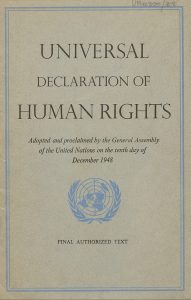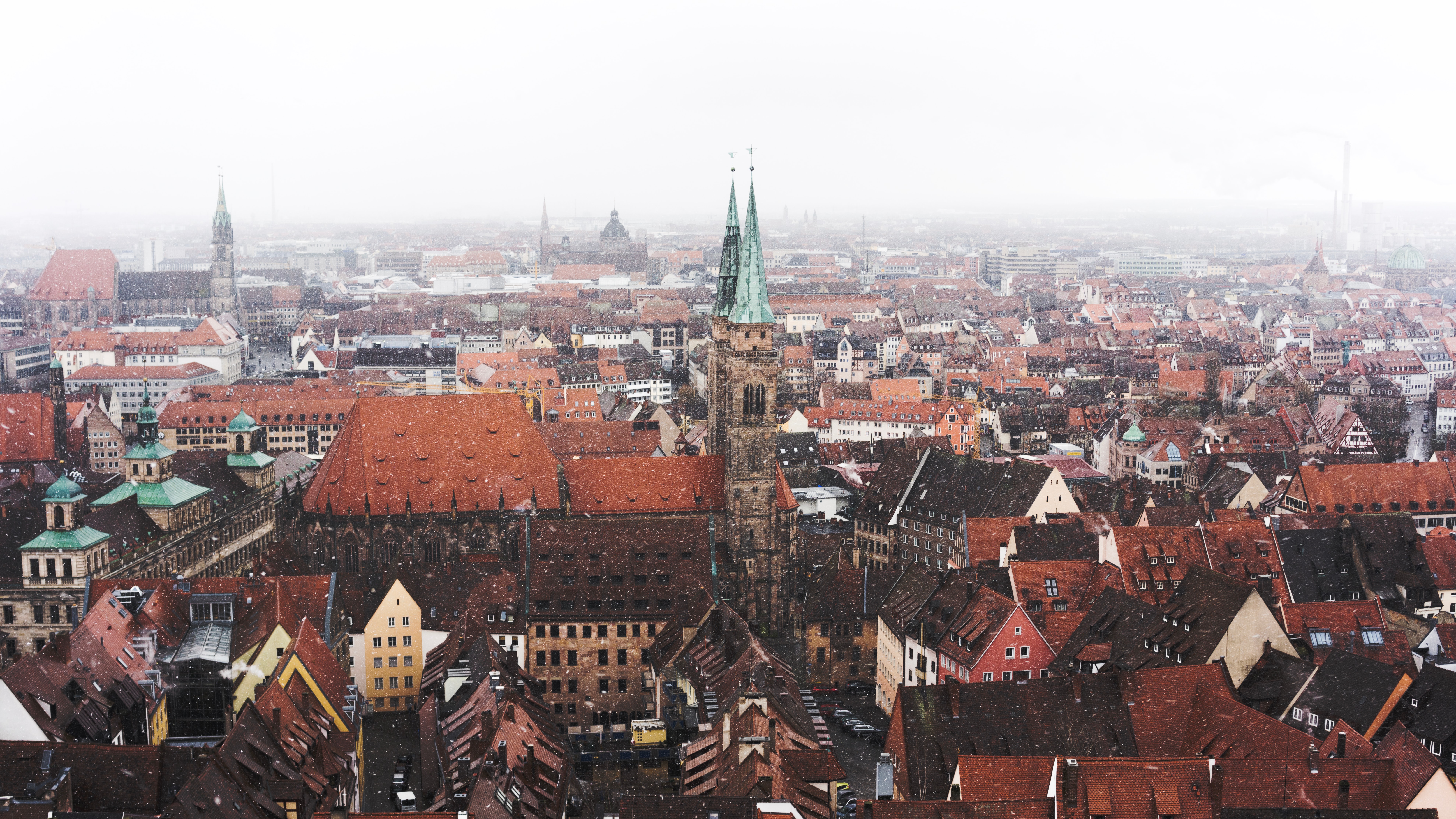Sir Norman Birkett, who served as the alternate British judge throughout the Nuremberg Trials, described them as “the greatest trial in history.”
Nowadays, it is common knowledge that the Nuremberg trials played a crucial role in trying prominent members of Nazi Germany’s leadership. Held by the Allied forces, the trials took place in the Nuremberg Palace of Justice. Why in Nuremberg? First and foremost, because of its enormous symbolic value. Nuremberg may be considered as a birthplace of the Nazi Party, since large propaganda events, the Nuremberg Rallies, were annually held there. On top of that, Nuremberg hosted the Reichstag session which passed the antisemitic, racist Nuremberg Laws. The accused, such as Hans Frank and Joachim von Ribbentrop, were either indicted but not convicted, indicted and found guilty, or not charged.
Nevertheless, only a few people realize that the trials were a turning point between classical and contemporary international law. The only question is – why exactly did the Nuremberg trials mark a milestone in the development of international legislation?
The very first international trial of war criminals
Although there had been prior prosecutions of war criminals in history, they had been conducted in compliance with the laws of a particular, single country. The Nuremberg Trials, however, were held under international law and the laws of war. The first and best known of the trials, namely this of the major war criminals, was conducted by the International Military Tribunal. Having met in Tehran, Yalta and Potsdam, the United Kingdom, the Soviet Union, and the United States reached an agreement regarding the form of punishment for war criminals. The decree issued by the European Advisory Commission, the London Charter, provided the legal basis for the forthcoming trial. Later on, each of the three major wartime powers as well as France provided one judge, an alternate and a prosecutor for the trial. What is worth highlighting is the fact that the IMT served as the model for establishing the International Military Tribunal for the Far East. The International Military Tribunal for the Far East, also known as the Tokyo Trial, tried the leaders of the Empire of Japan for crimes against peace as well as humanity.
The first prosecution for crimes against humanity
The aforementioned London Charter set down the ground rules and procedures by which the Nuremberg trials were to be conducted, thereby defining three categories of crimes: crimes against peace, war crimes, and crimes against humanity. The last category was defined in order to respond to the countless atrocities committed by the Nazi regime, such as the Holocaust. Article 6 of the Charter defines crimes against humanity as:
Murder, extermination, enslavement, deportation, and other inhumane acts committed against any civilian population, before or during the war, or persecutions on political, racial or religious grounds in execution of or in connection with any crime within the jurisdiction of the Tribunal, whether or not in violation of the domestic law of the country where perpetrated.
Interestingly, the term “crime against humanity” was used for the first time in the 19th century to describe the practises of Leopold II of Belgium’s administration of the Congo Free State.
The Conclusions of the Nuremberg trials served as models for numerous conventions
The Conclusions of the Nuremberg trials had a tremendous impact on drafting a great number of subsequent international codes, such as the Universal Declaration of Human Rights or the Nuremberg Principles. Being a pivotal text in international human rights, the UDHR establishes principles for the rights and freedoms of individuals. Despite not being legally binding, its content has been incorporated into subsequent treaties and national constitutions. Interestingly, the UDHR, having been translated into 524 languages, holds the title of the most translated document in history.

The Nuremberg Principles, on the other hand, provide a set of guidelines determining what constitutes a war crime. The document was created by the International Law Commission, comprising a body of experts in the field of international legislation.
The trials led to the establishment of the International Criminal Court
Had it not been for the Nuremberg trials, the International Criminal Court might not have been established. The trials pointed out the importance of creating a permanent intergovernmental tribunal, as there were conflicting court methods between the U.S. and the German court system.
Located in the Hague, the ICC began operations in 2002 and it complements existing national judicial systems. The International Criminal Court is the first and only permanent international court with jurisdiction to prosecute individuals for the international crimes of genocide, war crimes, crimes against humanity, and the crime of aggression. It plays a crucial role in prosecuting international criminals when domestic courts are unable or unwilling to do so. Arguably, the establishment of the ICC constitutes the most important reform of international law since 1945.
Conclusion
Sir Norman Birkett, who served as the alternate British judge throughout the Nuremberg Trials, described them as “the greatest trial in history.” Considering the unparalleled impact of this event on international law, he surely could not have been more right.
Sources:
https://www.un.org/en/universal-declaration-human-rights/
https://legal.un.org/ilc/texts/instruments/english/draft_articles/7_1_1950.pdf
https://www.jus.uio.no/english/services/library/treaties/04/4-06/military-tribunal-far-east.xml


Join the conversation!